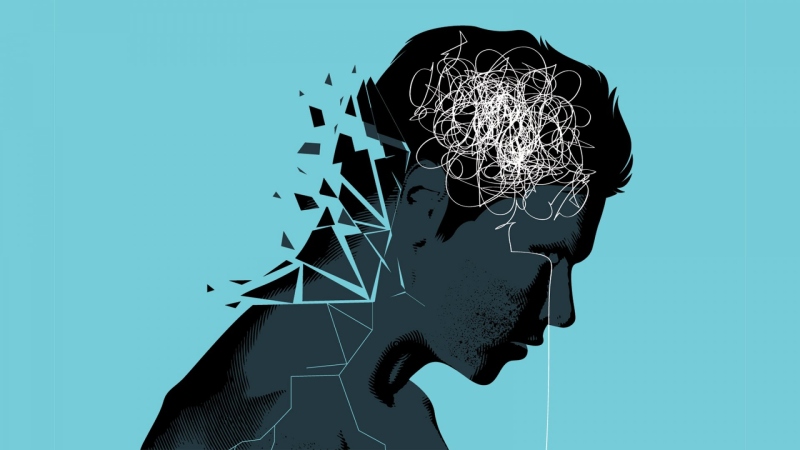The mental health of children went from bad to worse as they entered another year of digital learning with little interaction with peers and teachers. Many adults who lost their jobs or juggled with multiple tasks at home were left either depressed or exhausted

Yearender 2021: As the coronavirus pandemic stretches like a rubber band year after year with emergence of new variants, and announcement of fresh restrictions, the mental health of people across the globe has touched a new low.
While people continue to fight their individual battles and deal with job loss, loss of a dear one, anxiety problems, marital issues, depression, screen addiction, domestic abuse and loneliness, there seems to be no immediate respite from all the pandemic related woes.
2021 was particularly a bad year for mental health as adults, children and elderly suffered alike. The mental health of children went from bad to worse as they entered another year of digital learning with little interaction with peers and teachers. Many adults who lost their jobs or juggled with multiple tasks at home were left either depressed or exhausted. Elderly too missed their morning walks and the little interactions they had with people and felt disconnected and distressed.
Rise in stress, anxiety, depression, insomnia in kids
As per psychologists, there was a steep rise in cases of depression and anxiety issues in children as they felt lonely and suffered from mood swings, irritation, anxiety and depression issues.
"Children panicked, felt lonely, stressed, frustrated, irritated, and had mood swings as they failed to understand what exactly was going around them. They even had to stop socializing and meeting their friends that also led to behavioural challenges. Obstruction in cognitive health that is an inability to focus on the studies, restlessness, boredom, and nervousness, uneasiness, and even thoughts of self-harm in older children were some of the grave problems," says Dr Sonal Anand, Psychiatrist, Wockhardt Hospitals, Mira Road.
Worry over career issues led to stress and suicidal tendencies
Various studies indicate that the sudden loss of employment, along with financial stress took a huge toll on the mental health of the working community as they showed symptoms of increased aggressiveness, post-traumatic stress and increased suicidal tendencies.
"Some of us during this lockdown wrestled with familial conflict while others stressed over how coronavirus disruptions have affected their careers, businesses, academic performance, or daily wages," says Arouba Kabir, Mental Health Counselor, A wellness Coach.
Increase in cases of divorce and separation
While for many, pandemic time was considered a great time to bond as a family, the spike in cases of divorce and separation tells a different story.
“In a very unprecedented way, Covid has forced families and partners to spend a lot of time together. Initially, the picture was as rosy as possible but eventually the intrusion of privacy and space lead to increased upheavals and strenuous relationships," says Kabir.
Rise in domestic violence, addictions and substance abuse
Experts also saw an increase in the cases of domestic abuse, substance abuse and addictions in 2021 as people took out their frustrations in an unhealthy manner.
"Due to the presence of existing unresolved issues, people faced difficulties in facing their emotions. We’ve seen a spike in separation and divorces. However we’ve also seen individuals coming up and trying to resolve these issues," says the expert.
Digital addiction worsened anxiety issues
The ever-expanding screen time and dependence on smartphones are worsening the anxiety and depression issues in people as they hardly get any mental breaks.
"The increase in time spent binge-watching Netflix and other entertainment on a screen or use of smartphones is associated with a boost in anxiety and depression scores. Because of the 24/7 availability of television and social media, adults and children got fewer opportunities to take mental breaks and stay more resilient," says Upassna B Singh, Life Coach and Mentor.
Post Covid mental health issues
People who recovered from Covid also struggled with mental health issues like anxiety, insomnia and mood disorders.
"I have particularly found cases of hypochondria, other anxiety disorders including OCD, mood disorders, depression, substance abuse and insomnia. Hypochondria is quite prevalent. After recovering from covid people suddenly fear of a relapse, worry about their near and dear ones being infected with covid, contracting other illnesses, including terminal illnesses like cancer and dying. Such people become paranoid and obsess over their health and the health of their loved ones excessively. I have treated patients who have been experiencing frequent panic attacks and insomnia because of hypochondria, says Dr Vihan Sanyal, Psychotherapist.